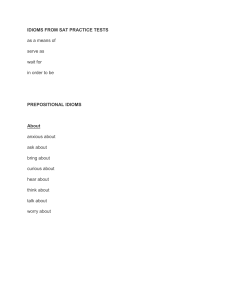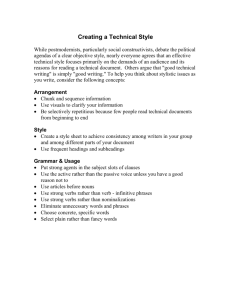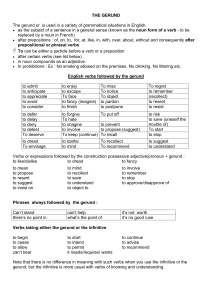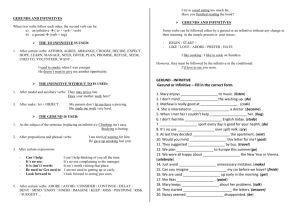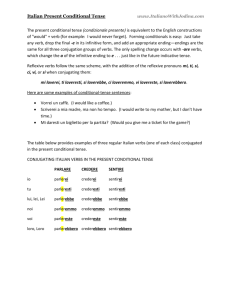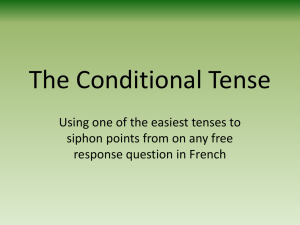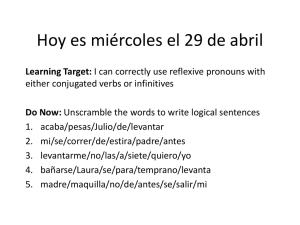商务英语 Unit 1 Customers
advertisement
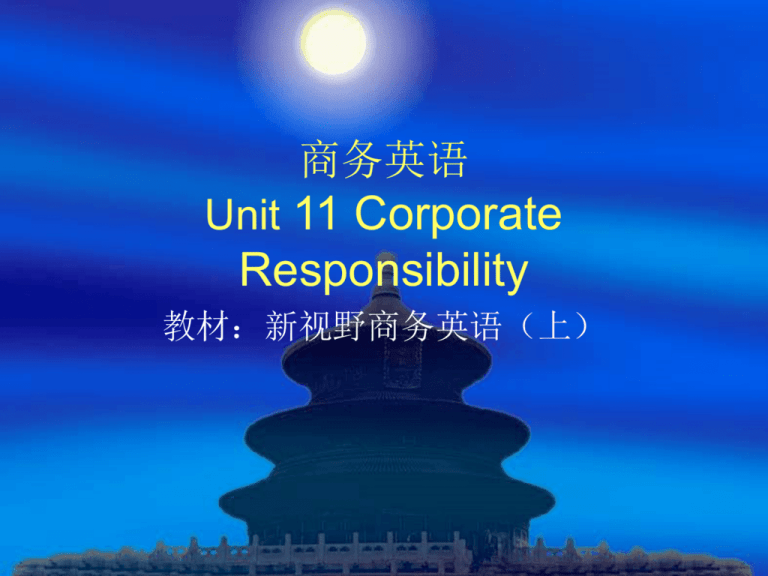
商务英语 Unit 11 Corporate Responsibility 教材:新视野商务英语(上) Unit 11 Corporate Responsibility Objectives Key vocabulary Lead-in Language focus Skills Business communication Homework Objectives When the learners finish learning this unit, they should be able to providing information on corporate responsibility collecting information on corporate responsibility Language focus Conditional 1: events and consequences Gerunds and infinitives Pronunciation: short forms Lead-in responsibilities: 1. there should be good communication 2. The company should pay suppliers on time. 3. the company should have an equal opportunities policy. 4. It should train its employees. Skills Writing: both…and either…or neither…nor Reading: late payment of commercial debts Listening: the ethical consumer Key vocabulary market research ethical consumers behave responsibly spending power environment itinerary foreign business trip make good use of colleagues business partner social conventions nationalities itinerary: plan for details or records of a) journey, route convention: general consent ;practice or custom based on general consent Conditional 1: events and consequences We use Conditional 1 to talk about future situations the speaker thinks are probable, and their consequences. Will expresses certainty about the consequence. When we are less sure of the consequence, we can use may and might. Form: if+present simple,+will+infinitive Gerund and infinitives When there are two verbs together in a sentence, we must be careful about the form of the second verb. After most verbs we use the infinitive with to The company agrees to change its ethical policy After some verbs we use the gerund ing form. We considered making the changes last month. Some common verbs which are followed by the gerund are: stop finish delay practice imagine consider risk avoid delay involve Pronunciation: short form of will/ will not Listen to the sentences then repeat. 1. How are will/ will not pronounced in Conditional 1 sentences? 2.How is will pronounced in the question form? Reading: Hefty: big and strong Deterrent: deter; discourage; hinder A bill: a proposal for a new law On the continent: continental Europe League table: a public list of all the worst payers Writing: both…and, either…or, neither…nor Both…and shows that two things, are compared. We use neither…nor to show two options are excluded i.e. to say that the two options are not possible or ture. Either…or shows one of two possible options. Homework: in the following sentence, is the consequence probably going to happen? Name three responsibilities that companies have? What pattern follows these verbs? Refuse consider could What is an important grammatical structure to use when you are negotiating?
